

New Orleans Ballplayers in the Armed Forces in WWII
by Gary Bedingfield
Flair entered military
service with the Army in January 1942 and was based at Camp Shelby,
Mississippi and Camp Sutton, North Carolina with the 166th
Field Artillery Regiment that year. He was honored with an Al Flair
Day at Franklin Stadium, New Orleans on May 10, 1942, while visiting
his parents on furlough from the Army.
In 1944 he was with the 2nd
Army Headquarters in Memphis, and played on the 8th Army
Headquarters team managed by Hugh Mulcahy that barnstormed around
Southwest Pacific bases in late 1944. He was later stationed in the
Philippines and Japan.
Flair returned to professional baseball in 1946. He was with the
Pelicans in 1947 and batted .308 with 24 home runs and 128 RBIs. He
retired from the game after playing with Fort Worth in 1951.
Charlie Gilbert
 Charlie
came from an outstanding baseball-playing family. His father, Larry,
had played for the Boston Braves and managed the Pelicans. His older
brother, Larry Jr, played for the Pelicans in 1938 but fell ill and
tragically died in 1941. His younger brother Harold (also known as
Tookie), would play for the Giants in the 1950s.
Charlie
came from an outstanding baseball-playing family. His father, Larry,
had played for the Boston Braves and managed the Pelicans. His older
brother, Larry Jr, played for the Pelicans in 1938 but fell ill and
tragically died in 1941. His younger brother Harold (also known as
Tookie), would play for the Giants in the 1950s.
Charlie played four years of high school ball at Jesuit High and
four years of American Legion. He was on the 1936 Legion team that
was beaten by Chicago in finals.
He started his pro career Nashville in 1939, where his dad was
managing and batted .317 with 67 RBIs. Brooklyn purchased his
contract but he suffered a leg injury with Dodgers in 1940 and was
sent to Montreal.
Charlie was traded to the Cubs in May 1941 and remained with the big
league team until entering military service with the Navy in 1944.
He was stationed at the US Naval Air Technical Training Center in
Norman, Oklahoma, and later served at the Pearl Harbor Submarine
Base in Hawaii.
Gilbert returned to the Cubs in 1946 and was traded to the Phillies
in June. His last season in the majors was with Philadelphia in 1947
when he batted .237.
Gilbert finished his professional career in style in 1948 by
returning to Nashville and batting .362 with 42 home runs and 110
RBIs.
Charlie Gilbert passed away in New Orleans on
August 13, 1983.
Connie Graff
Connie began his minor league career with the
Waycross Bears of the Georgia-Florida League in 1939. The Bears
released the first baseman shortly afterwards but he signed with
Gastonia of the Tar Heel League in 1940 and batted .274 for the
season. He played for the Cooleemee Cards of the North Carolina
State League and batted .308 before entering military service on
June 13, 1942.
Staff Sergeant Graff served with the Army in Europe. He was killed
in action on July 8, 1944 at St Lo, France.
In New Orleans, his sacrifice was recognized by service veterans who
chartered a VFW post in his name - Connie W Graff Post 7322.
In 1948, Connie Graff's
body was returned to New Orleans. Services
were held at the Sacred Heart of Jesus Church and he was laid to
rest at Greenwood Cemetery.
Fran Hecker
Fran began his pro career with Dothan in 1940
and also pitched for Daytona Beach that year. He entered military
service as an athletic instructor on
March 20, 1941, and was stationed at the American School in England
from 1943 to 1945. During that time he regularly pitched for the ASC
Angels.
Hecker returned to the game in 1946 and had a great comeback season
with New Iberia, posting an 18-15 record with a 3.18 ERA. He had,
however, missed five seasons of organised baseball and was now 27
years old.
Hecker pitched for the Pelicans in 1947 and was 15-10 with Lafayette
in the Evangeline League in 1948. He ended his playing days with
Baton Rouge in the same league in 1949 where he was 11-13 with a
2.45 ERA.
Fran Hecker passed away in New Orleans on October 8, 1989. He was
70.
Al Jurisich
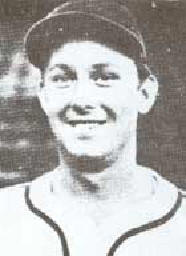 Al
was with the Pelicans from 1939 to 1942. He entered military service
with the Coast Guard in August 1942 and was stationed in New
Orleans.
Al
was with the Pelicans from 1939 to 1942. He entered military service
with the Coast Guard in August 1942 and was stationed in New
Orleans.
Discharged from service in 1944, he joined the St Louis Cardinals
primarily as a relief pitcher. He was purchased by the Phillies in
1946 and joined the San Diego Padres in the Pacific Coast League in
1948.
Jurisich enjoyed four seasons with the Padres and retired from
baseball after the 1951 season.
Al Jurisich passed away in New Orleans on November 3, 1981. He was
60.
Lou Klein
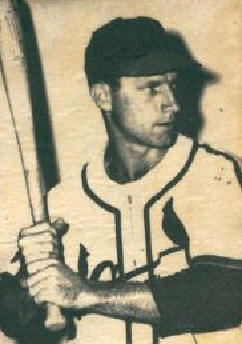 Lou
began his pro career with Daytona Beach of the Florida
State League in 1940, batting .348 with 81 RBIs. He joined the Cardinals in
1943 and batted .287 in his rookie season.
Lou
began his pro career with Daytona Beach of the Florida
State League in 1940, batting .348 with 81 RBIs. He joined the Cardinals in
1943 and batted .287 in his rookie season.
The following year, Klein joined the Coast Guard and served at Curtis Bay,
Maryland, where he also played baseball.
Klein was back with the Cardinals in 1946 but jumped to the outlaw Mexican
League and was banned by Commissioner Happy Chandler. He returned to the
Cardinals in 1949 and later played for the Indians and Athletics.
He played for his hometown Pelicans in 1953 and later coached the Chicago
Cubs, enjoying a brief stint as manager.
Jack Kramer
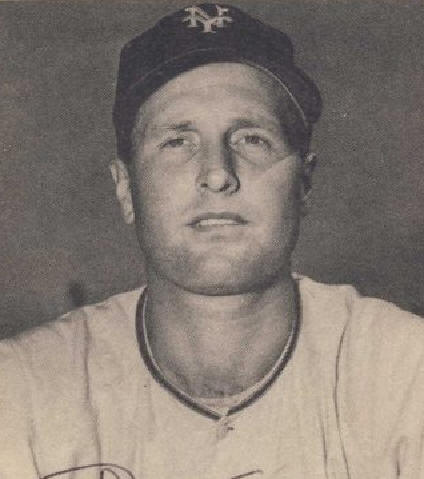 Jack
began his pro career with Lafayette of the Evangeline League in 1936. He won
20 games with San Antonio in 1938 and joined the Browns the following year.
Jack
began his pro career with Lafayette of the Evangeline League in 1936. He won
20 games with San Antonio in 1938 and joined the Browns the following year.
Kramer sat out the 1942 season to take a war plant job and later joined the
Seabees but received a medical discharge because he suffered from asthma.
Back in baseball, the Browns sent him to Toledo in 1943 where he won eight
straight games and hurled a no-hitter. He rejoined the Browns and was 17-13
during the American League pennant-winning 1944 campaign.
Kramer remained in the majors until 1951. He
had a career high 18 wins with the Red Sox in 1948.
Jack Kramer passed away in Metairie, Louisiana on May 18, 1995. He was 77.
Mel Parnell
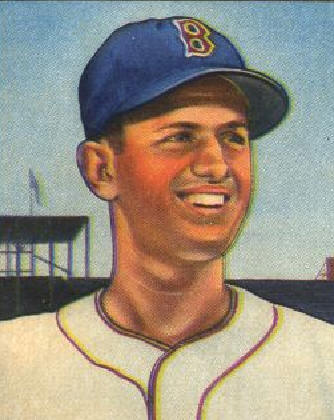 Mel
began his pro career with Centreville in 1941. He was 16-9 with Canton in
1942 and entered military service with the Army Air Force in 1943.
Mel
began his pro career with Centreville in 1941. He was 16-9 with Canton in
1942 and entered military service with the Army Air Force in 1943.
Parnell was stationed at Blytheville Army Air Field in Arkansas and Maxwell
Field, Alabama, where he played baseball for the Bombers.
Parnell returned to Scranton in 1946 and joined the Boston Red Sox in 1947.
He spent his entire 10-year career with Boston and compiled a 123-75 record.
In 1949 he was 25-7, leading the American League in wins, ERA (2.77),
complete games (27) and innings pitched (295.1). He pitched a no-hitter
against the White Sox on July 14, 1956.
Parnell later managed the Pelicans and various Boston farm clubs. He was a
member of Boston’s radio and television announcing crew from 1965 to 1968.
Mel Parnell lives in New Orleans.
Connie Ryan
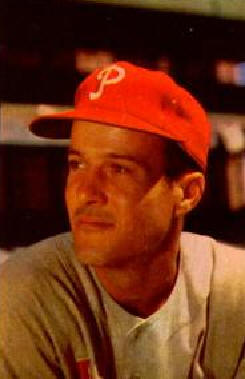 Connie,
a former LSU graduate, batted .316 with 73 RBIs in his rookie season with
Savannah in 1940. By 1942 he was with the Giants and was traded to the
Braves the following year, making the all-star team in 1944.
Connie,
a former LSU graduate, batted .316 with 73 RBIs in his rookie season with
Savannah in 1940. By 1942 he was with the Giants and was traded to the
Braves the following year, making the all-star team in 1944.
He entered military service in July 1944 and served with the Navy in the
Pacific. He was part of the 5th
Fleet ball team during the Western Pacific tour of 1945.
Ryan returned to the Braves in 1946 and remained in the majors until 1954.
He was a coach and minor league manager with Milwaukee during the late
1950s, and served as a scout and minor league manager with Houston during
the 1960s. He went on to manage Atlanta in 1975 and also managed the Texas
Rangers in 1977.
Connie Ryan passed away in Metairie, Louisiana on January 3, 1996. He was
75.
Herb Simpson
Herb grew up in New Orleans and played baseball at a playground in Gretna.
He was spotted by the Homestead Grays of the Negro National League but was
drafted by the Army before he could report to the team.
Simpson was inducted in the Army at Camp Beauregard, Louisiana in November
1942 and took infantry training at Cheyenne, Wyoming. He was assigned to a
quartermaster company and arrived in Scotland in 1944, where he was the
first man off the ship and was required to kneel down and kiss the ground!
While stationed in England, Simpson was the only African-American on an all
white baseball team that played in the Battle League.
He later served as a dispatcher for his company in mainland Europe, which
ran a “Red Ball Express” operation.
Simpson returned home and was discharged in February 1946. He signed a pro
contract with the Negro League Birmingham Black Barons and also played for
the Seattle Steelheads in the short-lived Negro Pacific Coast League.
In 1947, he joined the Harlem Globetrotters baseball team and also played
for the Chicago American Giants. He played minor league
baseball with Albuquerque in the West Texas-New Mexico League in 1952 and
also joined the Spokane Indians after many of their players lost their lives
in a tragic bus accident.
Simpson returned to Albuquerque in 1953 where he batted .372 with 59 RBIs
and retired from the professional game after the 1954 season.
Simpson returned to New Orleans where he played semi-pro baseball with the
New Orleans Creoles.
Herb Simpson lives in New Orleans.
George Strickland
 George
was a high school and American Legion star in New Orleans and made his pro
debut at third base with the Pelicans on September 5, 1943, collecting two
hits but committing four errors. He entered military service the following
season and served with the Navy in the Pacific through 1945.
George
was a high school and American Legion star in New Orleans and made his pro
debut at third base with the Pelicans on September 5, 1943, collecting two
hits but committing four errors. He entered military service the following
season and served with the Navy in the Pacific through 1945.
Strickland returned to the Pelicans in 1946 (one of eight local players on
that team), and continued to play in the minors until his contract was
purchased by the Pirates in 1950. The talented infield glove man went on to
enjoy ten seasons in the majors - ending his playing days with the Indians
in 1960.
Strickland later coached the Twins, Indians and Royals, and managed the
Indians in 1964 and again in 1966.
George Strickland lives in New Orleans.
Ray Yochim
 Ray
was a top high school and American Legion pitcher in New Orleans before the
war. In 1941, Branch Rickey invited him, along with Mel Parnell (who later
pitched for the Red Sox), to pitch batting practice for the Pelicans. At
that time, New Orleans was part of the Cardinals' farm system and the
sessions led to a chance for Yochim to pitch professionally.
Ray
was a top high school and American Legion pitcher in New Orleans before the
war. In 1941, Branch Rickey invited him, along with Mel Parnell (who later
pitched for the Red Sox), to pitch batting practice for the Pelicans. At
that time, New Orleans was part of the Cardinals' farm system and the
sessions led to a chance for Yochim to pitch professionally.
His pro career began in 1941 with Fresno in the California League and by
1942 he was hurling for the Pelicans.
Yochim entered military service with the Marine Corps early in 1943. He
never completed boot camp as the Marine Corps baseball team in San Diego
needed a pitcher!
He quickly established himself as one of the best servicemen pitchers on the
West Coast. In 1944, the San Diego Marine Corps Base clinched the 11th
Naval District championship in a three-game playoff with the Naval Training
Center. Yochim won 22 games against just five losses.
In 1945, Corporal Yochim was with the Fleet Marines baseball team in Hawaii,
where he continued to enjoy success.
Yochim returned to the Cardinals’ organization in 1946 and pitched for
Rochester in the International League. In 1947 he was 14-15 with the Red
Wings and made his major league debut with the Cardinals on May 2, 1948,
pitching the last inning and allowing no runs in a 14-3 loss against the
Cubs. He made a further three appearances for the Cardinals in 1949.
Yochim was 15-10 with Birmingham of the Southern Association in 1950 and
ended his playing career with the Pelicans in 1958.
Following a lengthy illness, Ray Yochim passed away in Metairie, Louisiana on January 26, 2002. He was 79.